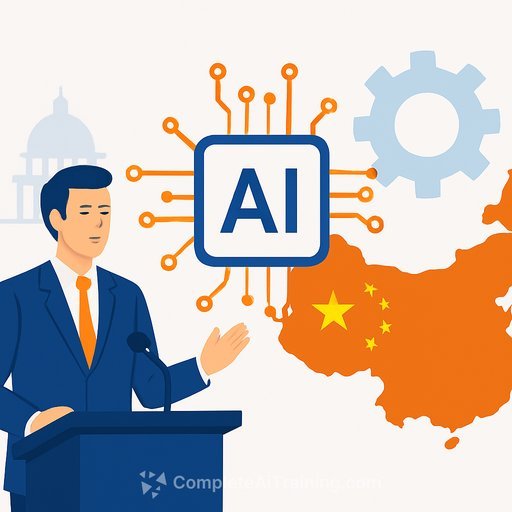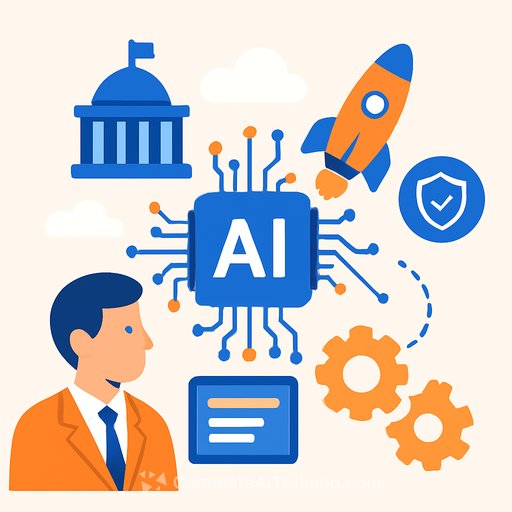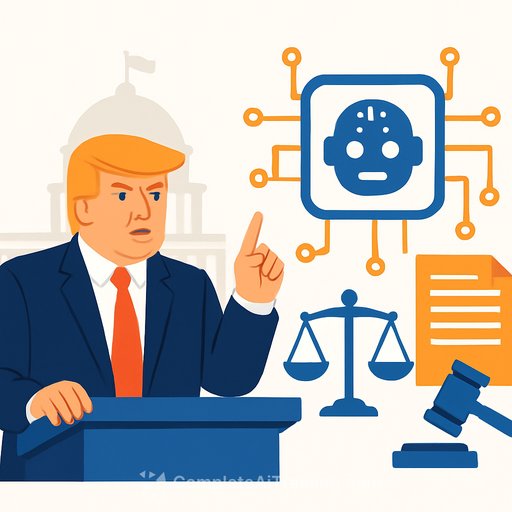Ukraine Launches AI-Powered Government Service to Cut Red Tape
Ukraine has introduced its first AI-driven public service, a key move in the country’s ongoing digital transformation. Announced on August 19 by the Ministry of Economy, the new AI module has been integrated into the government’s “ePermit” platform, which handles license applications.
The initial rollout focuses on veterinary service licenses. The AI automatically reviews submitted documents, identifies errors, and spots inconsistencies. This automation reduces the manual workload for government employees, speeds up the approval process, and lowers the number of rejections caused by minor mistakes.
Changing How Government Works with Citizens
Mykhailo Fedorov, Ukraine’s First Deputy Prime Minister and Minister of Digital Transformation, emphasized that this project goes beyond digitizing paperwork. “We are building a state that changes the very logic of how government interacts with people,” he said. The AI module ensures that citizens benefit from efficient service while their data remains securely stored within Ukraine.
Oleksiy Sobolev, Minister of Economy, Environment and Agriculture, highlighted the practical benefits: freeing experts from routine document checks allows them to focus on cases that require human judgment. For businesses, this means less bureaucracy and faster startup times. For the government, it leads to better decision-making quality.
Collaboration and Technology Behind the Scenes
The project was developed by a joint team from multiple ministries with backing from the European Union’s EU4DigitalUA program. Google DeepMind provided technical support, adapting its open-source Gemma models to meet Ukraine’s public sector needs.
Tris Varkentin, Director of Product Management at Google DeepMind, explained that Gemma is intended to empower governments and developers to create practical AI solutions. The ePermit platform demonstrates how AI models can address real-world challenges effectively.
The European Union praised this initiative as a model for reducing bureaucracy and boosting public trust. Asier Santillán Luzuriaga, head of the EU’s Governance and Rule of Law division in Ukraine, said the tool cuts red tape, improves efficiency, and strengthens confidence in government—all while adhering to strict data protection standards.
Overcoming Challenges and Looking Ahead
Developing this AI service presented challenges. The team had to handle documents of varying quality, including handwritten notes. They also faced restrictions on using real data for AI training. To solve these issues, they used synthetic data, adaptive algorithms, and a hybrid modeling approach designed to fit government workflows.
The veterinary licensing service is just the beginning. Officials plan to extend the AI system to other types of permits and licenses across Ukraine, streamlining multiple government processes.
In addition, Deputy Prime Minister Fedorov announced the upcoming launch of several grant programs focused on domestic production of explosives, autonomous drones, and various rockets, signaling further steps in Ukraine’s tech and defense sectors.
For government professionals interested in AI applications that improve efficiency and reduce workload, exploring comprehensive AI training can be valuable. Resources like Complete AI Training offer courses tailored to public sector needs and automation skills.
Your membership also unlocks:






